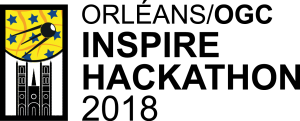TEAM LEADER: Tomáš ŘEZNÍK (Masaryk University/Lesprojekt/Wirelessinfo/HSRS)
TEAM MEMBERS: Šimon LEITGEB (Masaryk University/Lesprojekt/Wirelessinfo), Štěpán KAFKA (HSRS), Karel CHARVÁT (Plan4All/Lesprojekt/Wirelessinfo/HSRS), other participants are warmly welcomed
PROJECT IDEA: Discoverability of geospatial data and services (aka resources) has been considerably improved during the last decade as several catalogues have been developed, fulfilled with metadata and being in daily use for many users. Nevertheless, it means that a user typically works with her/his GIS system and opens a catalogue as a specialized application. Such paradigm may suit to geospatial experts.
On the contrary, a laymen expects one simple tool for maps viewing. (S)he does not like to bother with another application to discover which other geospatial resources are available for a currently zoomed area.
The aim of this team is therefore to develop an easy-to-use satellite images discovery integrated directly in a map viewer. We intentionally do not use the term ‘catalogue’ as (1) we would like to erase borders between data and metadata in our application and (2) we would like to retain catalogues in a way they are.
Relevant resources to a currently zoomed area will appear through links to satellite programmes’ APIs, such as Copernicus’ Open Access Hub. The developed application will be based on OpenLayers 4-based framework called HSLayers NG (see https://github.com/hslayers/hslayers-ng).

